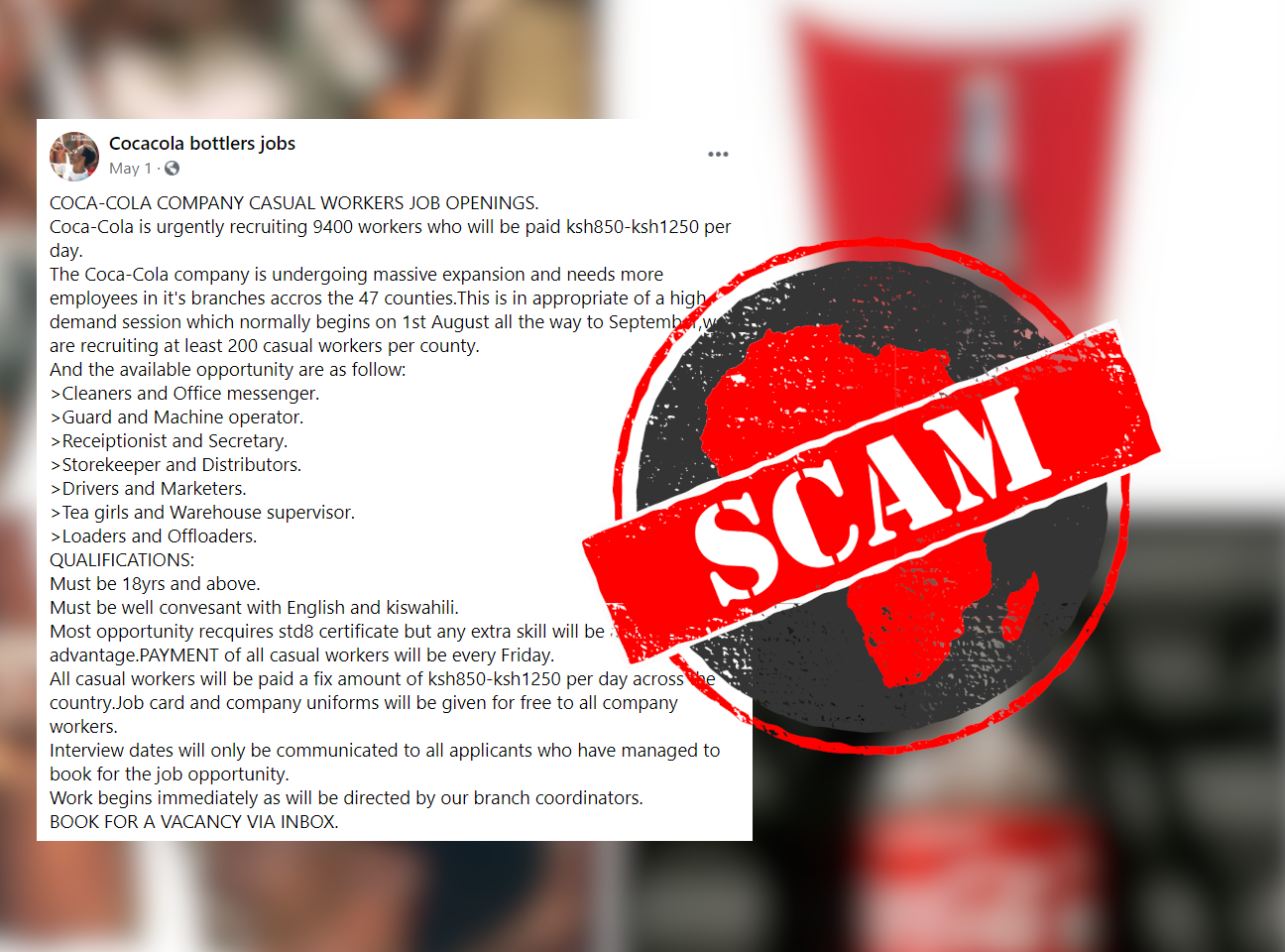Since it was created on 29 April 2021, “Cocacola bottlers jobs” has tried to pass itself off as an authentic Coca-Cola company Facebook page. It uses Coke ads for its profile and cover photos.
One of the posts on the Kenya-based page, offering 9,400 jobs that pay KSh850 to KSh1,250 a day, has been shared more than 1,000 times.
“The Coca-Cola company is undergoing massive expansion and needs more employees in it's branches accros the 47 counties,” the poorly written post reads.
“This is in appropriate of a high demand session which normally begins on 1st August all the way to September,we are recruiting at least 200 casual workers per county.”
It ends with: “BOOK FOR A VACANCY VIA INBOX.”

Signs of a scam
The page shows all the signs of a scam, like the many other job scams on Facebook that Africa Check has previously exposed.
For instance, the instruction to apply for the jobs “via inbox” is highly suspicious. Most reputable organisations have a formal application process, either via a form on their website or to an official email address. But scam pages don’t give job seekers any real way to apply.
The page does give any official website or contact details. And its name misspells “Coca-Cola”. The poor spelling and grammar across the page are one of the common signs of a scam.
Africa Check previously fact-checked a page with similar job ads and found it to be a scam.
No jobs found
The jobs offered on the page can’t be found on the Coca-Cola Beverages Africa website’s recruitment page. And they don’t appear on the company’s verified Facebook page.
The company has previously said that all its job opportunities are posted on its official social media pages and on its website.
Read our detailed guide on how to identify Facebook scams.
Republish our content for free
For publishers: what to do if your post is rated false
A fact-checker has rated your Facebook or Instagram post as “false”, “altered”, “partly false” or “missing context”. This could have serious consequences. What do you do?
Click on our guide for the steps you should follow.
Publishers guideAfrica Check teams up with Facebook
Africa Check is a partner in Meta's third-party fact-checking programme to help stop the spread of false information on social media.
The content we rate as “false” will be downgraded on Facebook and Instagram. This means fewer people will see it.
You can also help identify false information on Facebook. This guide explains how.


Add new comment